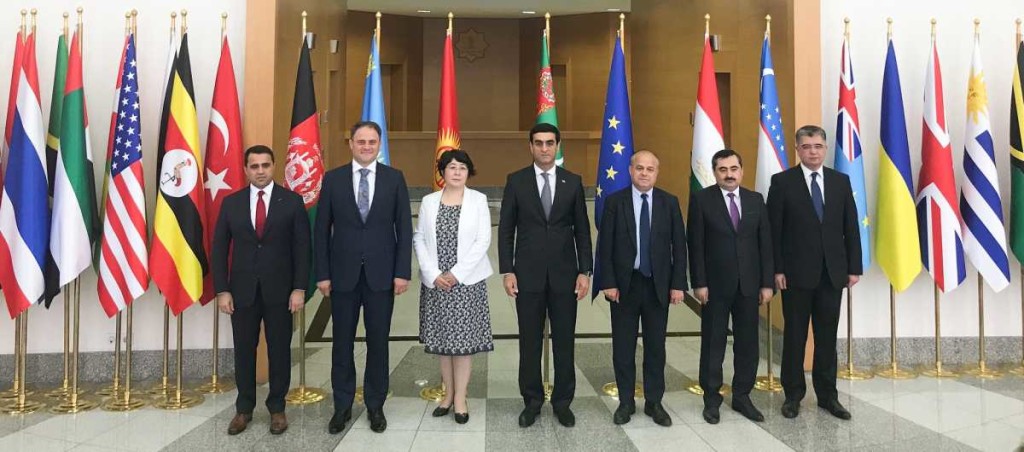ASTANA – Delegations from Central Asian foreign ministries and from European External Action Service (EEAS) held the fifth annual High Level Dialogue (HLD) on Political and Security matters in Ashgabat, Turkmenistan, on July 9.
Central Asian authorities and the EU are working to present the updated EU Strategy on Central Asia aimed at upgrading relations between the two regions next year. The sides are also exchanging best practices in security to adopt common measures in combating terrorism, radicalisation and drug trafficking, along with improving border security.
The common efforts to shape the strategy and focus on security is meant to shape inter-regional cooperation between Central Asia and the European Union. By inviting Afghanistan as a guest to the dialogue, the parties imply a common vision about the interconnectivity of security and development challenges in the region.
The session participants discussed cooperation areas, from revising the EU’s Central Asia Strategy to the ongoing drafting of a new EU Strategy on Euro-Asian connectivity tasked to establish a sustainable connectivity for “equitable and balanced growth.” Protection of the environment, the use of water resources and social and economic rehabilitation of Afghanistan were on the agenda, as well.
The two regions are building inter-regional cooperation to employ opportunities offered by programmes in education, regional security and stabilisation in Afghanistan, said Deputy Foreign Minister of Kazakhstan Roman Vassilenko.
The update of the EU Strategy on Central Asia, with finalisation planned by mid-2019, is expected to enhance political, economic and humanitarian collaboration and expand the partnership.
HLD participants also reviewed cooperation within the Border Management Programme in Central Asia (BOMCA) and the Central Asia Drug Action Programme (CADAP). Both projects have improved security in Central Asia.
BOMCA and CADAP were launched in the early 2000s as platforms to assist regional governments. Within the programmes, the EU contributed more than $46.8 million and $24.1 million respectively for monitoring activities, preventive campaigns and capacity building of Central Asian law enforcement agencies.
With Afghanistan on board, HLD allows reviewing the socio-economic and political situation in the region on a wider context, as well as on-site consideration of options for cooperation with Kabul on security matters.
Considering the expanding HLD agenda, Kazakhstan has suggested holding thematic seminars on cyber- and border security and economic connectivity under HLD auspices.
Several delegations recalled the Astana meeting of Central Asian leaders in March initiated by Uzbek President Shavkat Mirziyev as a point that gave a new impetus to regional cooperation.
Traditionally, the HLD bases its meetings on agreements and guidance arising from the annual CA-EU ministerial meeting. The latest such meeting took place in Samarkand, Uzbekistan, with the next one planned for Nov. 23 in Brussels.
Kazakhstan and the European Union representatives later held separate meeting on the HLD sidelines.
EEAS Deputy Secretary General Jean-Cristophe Belliard and EU Special Representative for Central Asia Peter Burian led the EEAS delegation.


